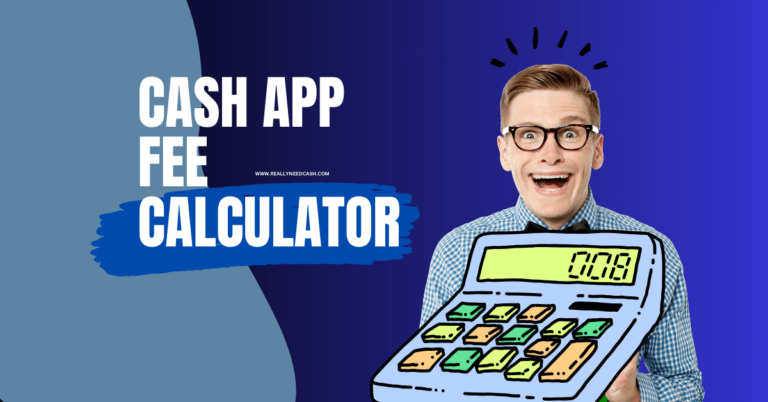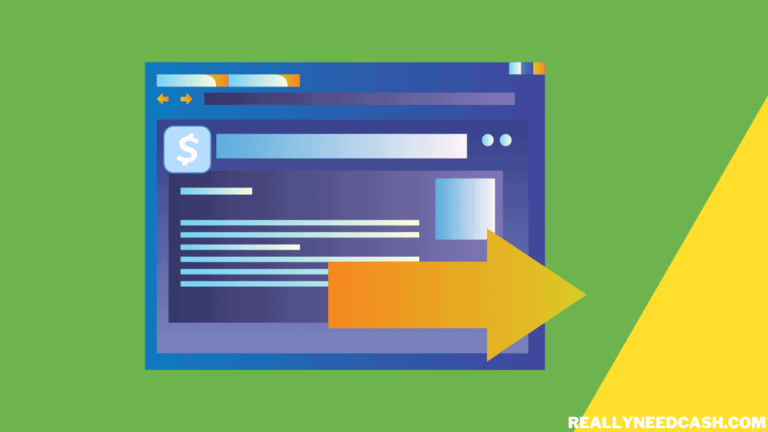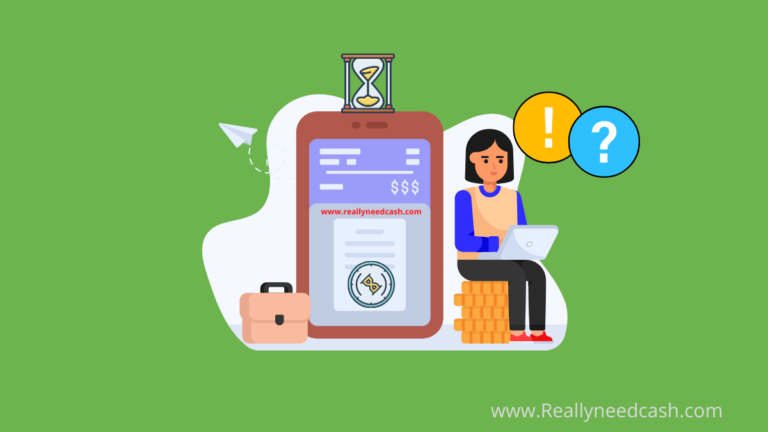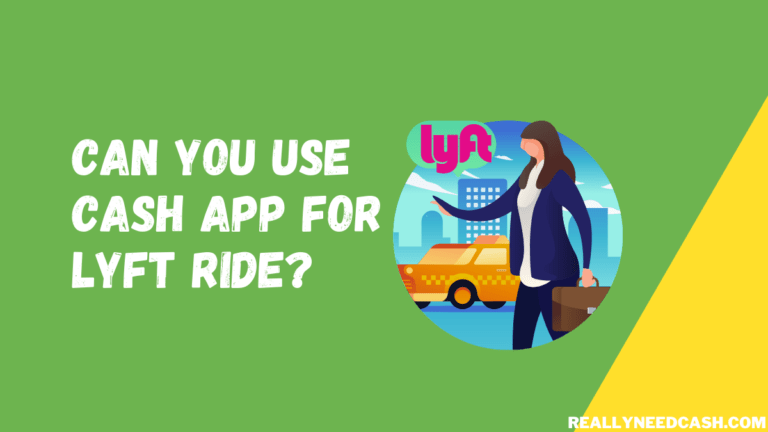Here’s how a Send Me Your Cash App Information Scam work: A scammer contacts you, posing as a Cash App customer services representative, and requests your Cash App information. Then, the fraudster logs into your account and withdraws money from it. So, it’s always crucial to verify their identity.
Scammers and fraudsters on Cash App resort to various schemes, including messages, emails, and more, and the “send me your Cash App information”’ scam is one of them.
But how can you tell when a request is authentic? And how do you protect yourself against this scam?
That’s what we’ll help you do in today’s post!
RELATED READ:
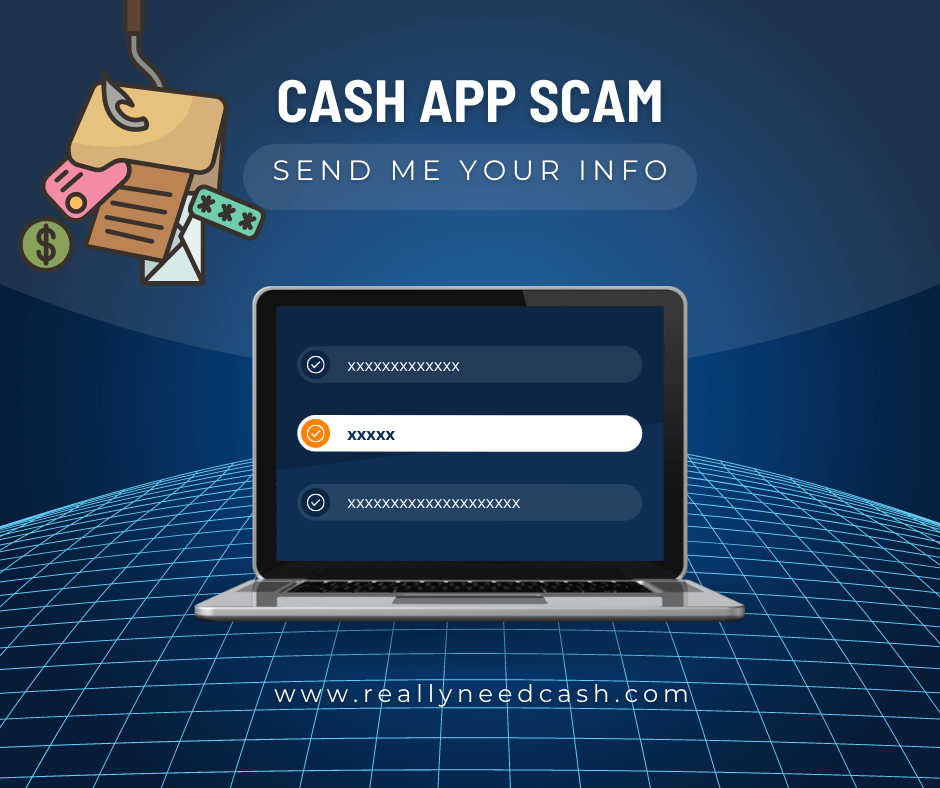
Why do Scammers Ask for Your Cash App Information?
Scammers ask for your information to pretend as a Cash App’s customer support team. They may reach out to you via email, phone, text, or social media. An especially prevalent tactic is using phone calls, and the fake Cash App number will be on a third-party site resembling Cash App.
Fraudsters might ask you some professional questions to make their identity seem legit. Then, they’ll transition into questions about private information like your Cash App PIN.
Another technique is to direct you to a fake Cash App website with a phishing link. For example, a scammer might create fake Cash App customer support pages and pretend to work for Cash App. They might even use paid ads to boost their traffic and ensure a Google search shows their pages.
Otherwise, we have fake Cash App account security alerts. So, someone might send you an email pretending to be Cash App. They claim your account has security issues or that you’ve requested a credentials change. Then, the email will direct you via a phishing link to the faux cash app page so that you can settle the ‘security issue.’
Then, the webpage asks you to ‘log in,’ and when you enter your Cash App information, the fraudster gets a record of it, steals it, and logs into your account.
The repercussions start when you get notifications from Cash App until you find that they’ve withdrawn money from your account. Even worse, they might steal your information on the app, such as your credit card information and ID, and use it for identity theft!
RELATED READ: Can You Get Scammed on Cash App Sugar Daddy?
Steps to Take to Avoid Falling for Send Me Your Cash App Information Scam
To steer clear of Cash App scams, follow these guidelines:
- Secure My Account: I always make sure to fortify my account by enabling two-factor authentication (2FA) and activating Cash App’s “security lock.”
- Double-Check Recipient Info: Before I send any payment, I always double-check the recipient’s information to avoid any hiccups.
- Steer Clear of Strangers: I don’t pay attention to Cash App emails that come from fishy, unverified email addresses. It’s a no-go for me.
- Hold Off on Clicking Links: I never pay for services until I’ve got them in hand. Clicking links too soon is just asking for trouble.
- I Never Send Money Unprompted: Cash App will never ask me for money for any reason. If someone’s pushing for it, I’m immediately suspicious.
- End the Chat ASAP: If someone asks for my Cash App PIN or Social Security number, or tries to push me into sending money, I cut off the conversation without hesitation.
How to Avoid the Scam?
To avoid this scam, you need to confirm the identity of the person you’re talking to, and here’s how:
Being Contacted by the Support Team
Cash App support might indeed ask for some account details to verify your identities, such as your legal name, phone, email, or the last 3-4 digits of the bank account or card linked to your account. To secure this data, Cash App uses SendSafely and Sprinklr.
ِCash App can email you from a @cash.app, @square.com, or @squareup.com address. In addition, according to Cash App, “no one representing Cash App will ever ask for your sign-in code over the phone, on social media, or through any other medium.”
So, unless Cash App asks for your information on the app itself, it’s safe to assume the request isn’t legit. Not to mention, Cash App never asks for your sign-in code, PIN, or full bank account information.
Contacting the Support Team
If you’re the one to reach out to, it’s best to contact Cash App support via the app. To do that, you should:
- Select the profile icon on the app’s home screen.
- Click Cash App Support
- Select Something Else
- Choose the issue relevant to you
- Click Contact Support
Otherwise, you can get help through cash.app/help using the following steps:
- Tap contact support
- Login
- Select the issue relevant to you
As for phone calls, consider them your last resort. Cash App’s support number is 1 (800) 969-1940.
Reporting the Scam
Before reporting the fraudulent activity, change your Cash App PIN at once. Also, if you suspect that the scammer may have access to your bank accounts, you should contact the financial institutions and replace the credit or debit cards.
As for reporting the scam, here’s how to do it:
- Choose Support
- Tap Report a Payment Issue
- Navigate to the payment
- Follow the prompts
Unfortunately, payments from a Cash App account to another Cash App account are instant and aren’t likely to be canceled. So, if you want to, you can report a fraudster to the Federal Trade Commission.
More Cash App Scam Types
- Fema Scam
- I Got scammed on Cash App: What Should I do now
- Drop Your CashApp Tag Scam: How to Avoid Falling for It
- Cash App Potential Scam Warning Message
- Avoid Cash App Sugar Daddy Scams asking Email
- 3 Common Cash App Scams on Facebook Messenger
- Can You Get Scammed With Bitcoin on Cash App
- Cash App Clearance Fee: Sugar Daddy &Sugar Momma Scam
Final Verdict
Overall, scams are no joke, especially when the fraudster asks for your Cash App information. So, verify the identity of the person you’re talking to and the authenticity of the page you’re ‘logging into.’ Also, remember that the Cash App support team will never ask for your sign-in code via any platform other than the app.
If you notice anything different, you’re probably dealing with a scammer trying to get your login credentials to withdraw your Cash App money.
Did you find this article helpful? For any queries, Let us know in the comments below and we will try our best to help you out!



